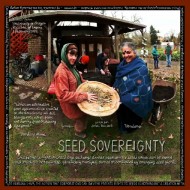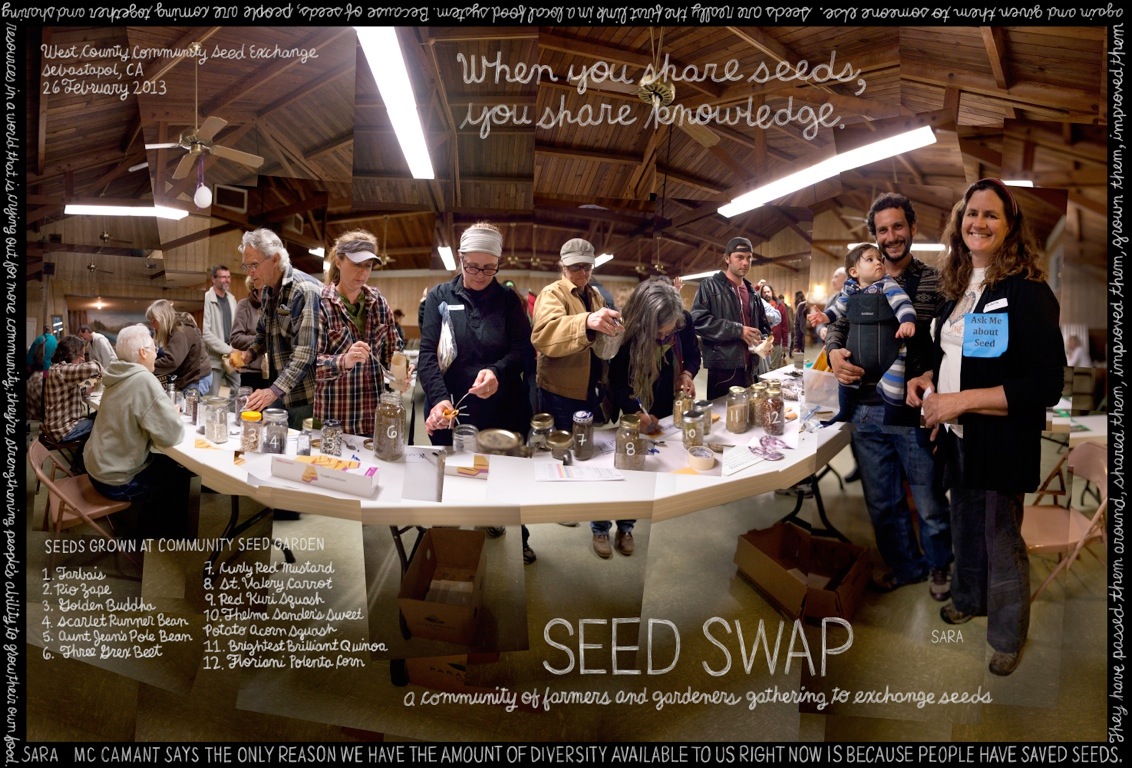
While agriculture companies control the patents and production of seeds used by many commercial farmers, backyard gardeners and local seed banks strive to preserve both the culture and biodiversity of seeds through their own methods. The latest video from The Lexicon of Sustainability's Douglas Gayeton explores seed banks, seed swaps and the work of environmental activist, author and physicist Dr. Vandana Shiva, who explains the "seed sovereignty" movement.
5 Quotes from Sara McCamant of West County Community Seed Exchange, Sebastopol, CA
On creating a seed exchange program:
"I have been running large educational garden projects for 25 years in Northern California. A small group of us were looking at what was missing to make a stronger, more resilient local food system in Sonoma County. I had always wanted to do more with seed and create a stronger network of seed savers after organizing yearly seed swaps. We saw the need for local seed as the first link to local resilience and sustainability [and] decided to launch a community seed bank where we would network with other seed savers and start a repository of locally-grown seed."
Their big picture goal:
"The original mission of the seed exchange is to create a repository of locally-grown seed, build a network of seed savers and teach seed saving and the importance of local seed in our community. We have since added care for a community seed garden as part of our work."
Preserving diversity:
"The world of seed has quickly been taken over by large agro-chemical companies like Monsanto and Bayer. We have seen a huge loss of diversity of varieties of what is available in the food world in this consolidation. Seed is the first link of the food system and if that is dominated by large multinational companies, perhaps it is not so good for local resilience. Gardeners and small farmers need to integrate seed saving back into their systems and help build a strong local system to save and preserve varieties -- and also to adapt varieties to local climates."
